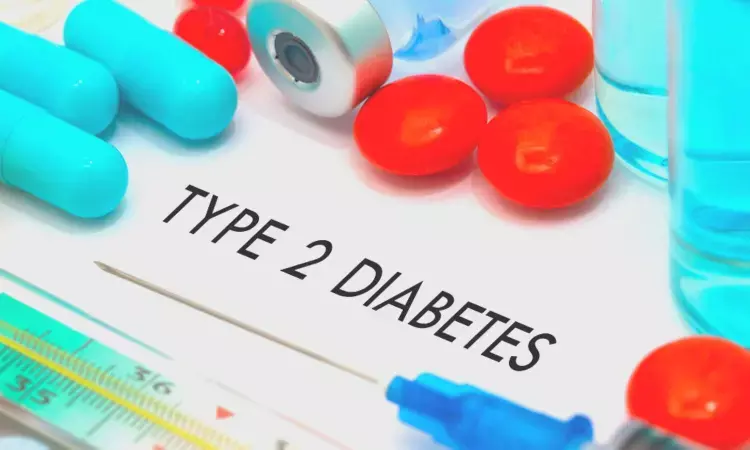- Home
- Medical news & Guidelines
- Anesthesiology
- Cardiology and CTVS
- Critical Care
- Dentistry
- Dermatology
- Diabetes and Endocrinology
- ENT
- Gastroenterology
- Medicine
- Nephrology
- Neurology
- Obstretics-Gynaecology
- Oncology
- Ophthalmology
- Orthopaedics
- Pediatrics-Neonatology
- Psychiatry
- Pulmonology
- Radiology
- Surgery
- Urology
- Laboratory Medicine
- Diet
- Nursing
- Paramedical
- Physiotherapy
- Health news
- Fact Check
- Bone Health Fact Check
- Brain Health Fact Check
- Cancer Related Fact Check
- Child Care Fact Check
- Dental and oral health fact check
- Diabetes and metabolic health fact check
- Diet and Nutrition Fact Check
- Eye and ENT Care Fact Check
- Fitness fact check
- Gut health fact check
- Heart health fact check
- Kidney health fact check
- Medical education fact check
- Men's health fact check
- Respiratory fact check
- Skin and hair care fact check
- Vaccine and Immunization fact check
- Women's health fact check
- AYUSH
- State News
- Andaman and Nicobar Islands
- Andhra Pradesh
- Arunachal Pradesh
- Assam
- Bihar
- Chandigarh
- Chattisgarh
- Dadra and Nagar Haveli
- Daman and Diu
- Delhi
- Goa
- Gujarat
- Haryana
- Himachal Pradesh
- Jammu & Kashmir
- Jharkhand
- Karnataka
- Kerala
- Ladakh
- Lakshadweep
- Madhya Pradesh
- Maharashtra
- Manipur
- Meghalaya
- Mizoram
- Nagaland
- Odisha
- Puducherry
- Punjab
- Rajasthan
- Sikkim
- Tamil Nadu
- Telangana
- Tripura
- Uttar Pradesh
- Uttrakhand
- West Bengal
- Medical Education
- Industry
Vitamin D deficiency tied to dyslipidemia in type 2 diabetes complicated with obesity and CAD: Study

Saudi Arabia: In type 2 diabetes, the deficiency status of vitamin D was shown to be associated with dyslipidemia, particularly those complicated with coronary artery diseases and obesity, a recent study in Clinical Laboratory has revealed.
Type 2 diabetes mellitus (T2DM) is a chronic metabolic disease leading to vascular complications. Amal F. Gharib, Taif University, Ta'if, Saudi Arabia, and colleagues aimed to investigate the relationship between vitamin D deficiency, dyslipidemia, and obesity with the risk of coronary artery disease in type 2 diabetes.
The study included 200 Saudi adult participants, aged 40 - 60 years, of both genders, who attended King Abdulaziz Specialist Hospital in Taif city. The subjects were categorized into four groups; the control group, type 2 diabetes, type 2 diabetes with coronary artery disease (CAD), and type 2 diabetes with obesity having body mass index (BMI) ≥ 30 kg/m2; 50 subjects were included in each group.
The researchers estimated fasting blood glucose (FBG), serum vitamin D (25-OH-D), high-density lipoprotein cholesterol (HDL-C), total cholesterol (TC), low-density lipoprotein cholesterol (LDL-C), glycosylated hemoglobin (HbA1c), and triglycerides (TG) levels.
The study led to the following findings:
- Serum vitamin D and HDL-C in the three diabetic patient groups were significantly decreased compared to the control group.
- Among patient groups, the levels in the diabetic coronary and diabetic obese patients were significantly decreased compared to the diabetic patient group.
- FBG levels, HbA1c%, TC, TG, LDL-C levels, and BMI in all diabetic patient groups were significantly higher compared to the control.
- Significant negative correlations were observed between serum vitamin D and FBG, HbA1c%, TC, TG, LDL-C levels, and BMI, whereas positive correlations with HDL-C in all diabetic patient groups.
The researchers concluded that "the deficiency status of 25-OH-D is linked with dyslipidemia in type 2 Saudi diabetic patients, particularly those complicated with obesity and coronary artery diseases."
Reference:
Gharib, Amal F., et al. "Association of Vitamin D Deficiency, Dyslipidemia, and Obesity With the Incidence of Coronary Artery Diseases in Type 2 Diabetic Saudi Patients." Clinical Laboratory, vol. 68, no. 10, 2022.
Dr Kartikeya Kohli is an Internal Medicine Consultant at Sitaram Bhartia Hospital in Delhi with super speciality training in Nephrology. He has worked with various eminent hospitals like Indraprastha Apollo Hospital, Sir Gangaram Hospital. He holds an MBBS from Kasturba Medical College Manipal, DNB Internal Medicine, Post Graduate Diploma in Clinical Research and Business Development, Fellow DNB Nephrology, MRCP and ECFMG Certification. He has been closely associated with India Medical Association South Delhi Branch and Delhi Medical Association and has been organising continuing medical education programs on their behalf from time to time. Further he has been contributing medical articles for their newsletters as well. He is also associated with electronic media and TV for conduction and presentation of health programs. He has been associated with Medical Dialogues for last 3 years and contributing articles on regular basis.
Dr Kamal Kant Kohli-MBBS, DTCD- a chest specialist with more than 30 years of practice and a flair for writing clinical articles, Dr Kamal Kant Kohli joined Medical Dialogues as a Chief Editor of Medical News. Besides writing articles, as an editor, he proofreads and verifies all the medical content published on Medical Dialogues including those coming from journals, studies,medical conferences,guidelines etc. Email: drkohli@medicaldialogues.in. Contact no. 011-43720751


